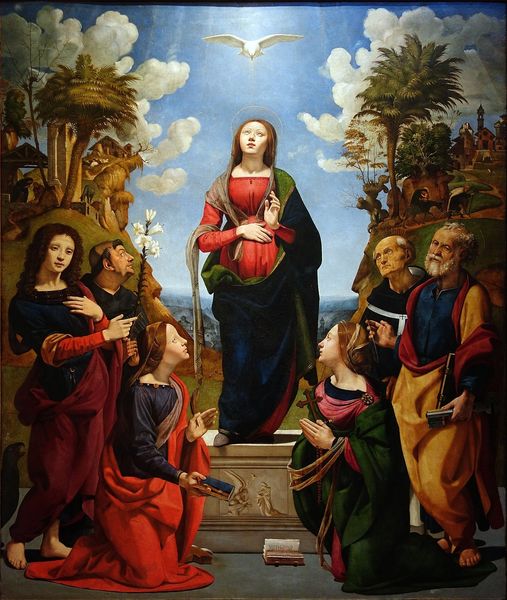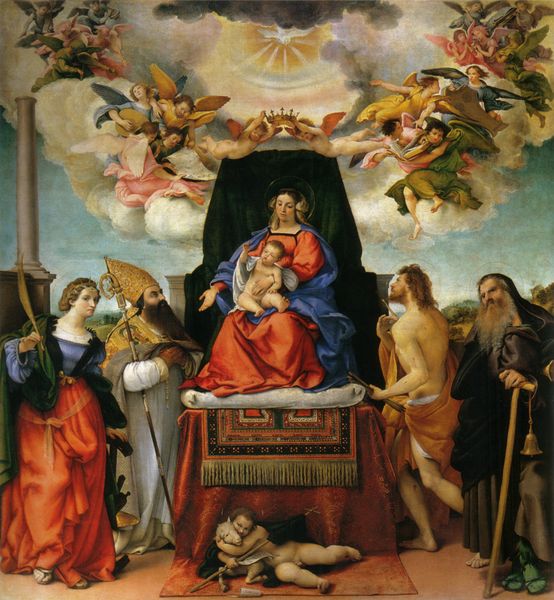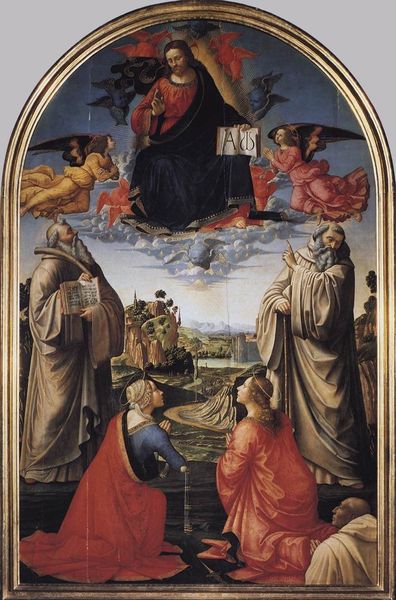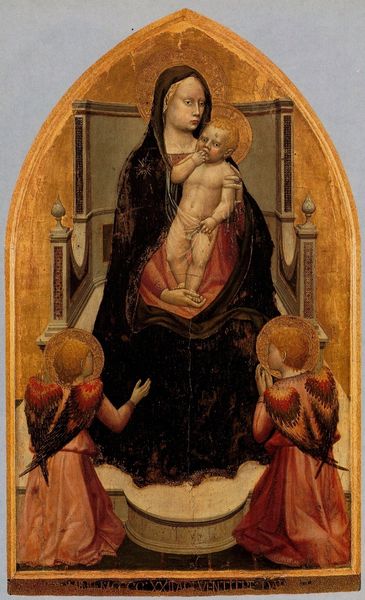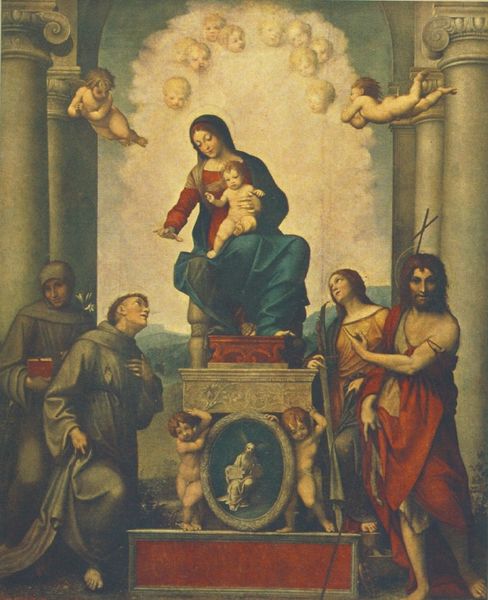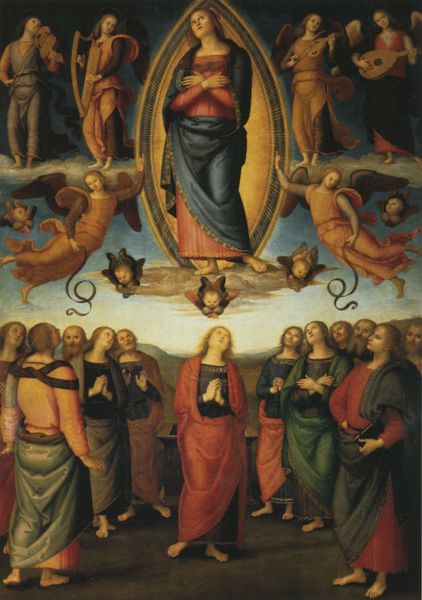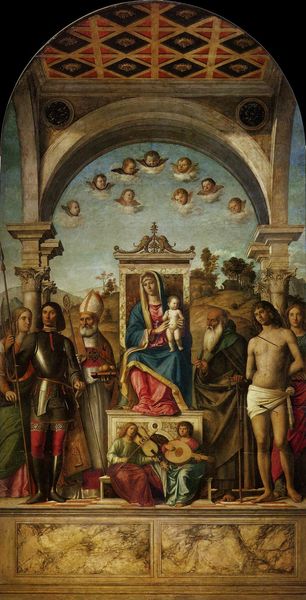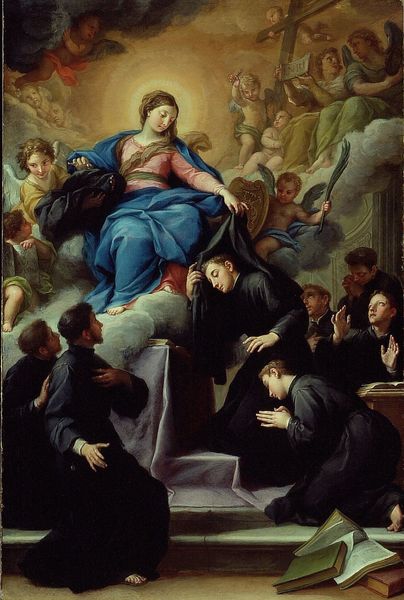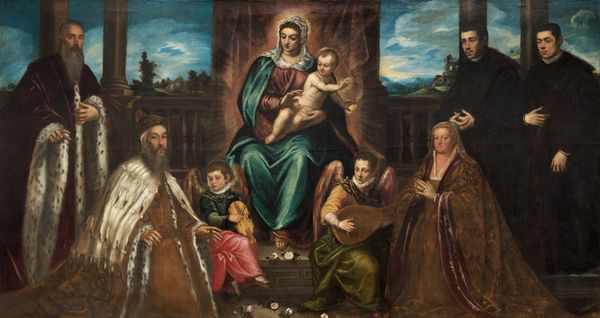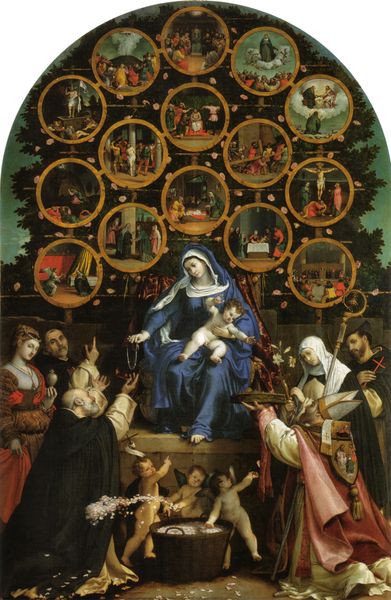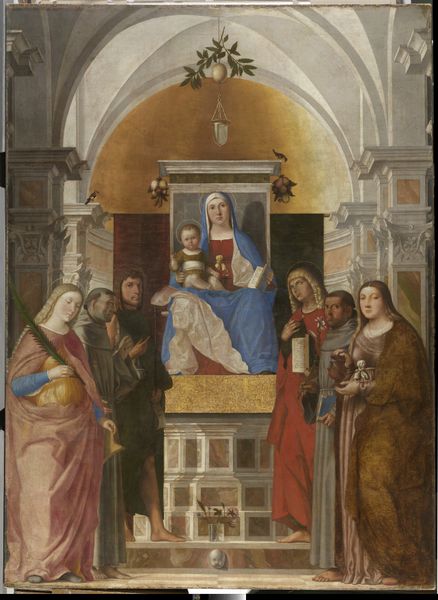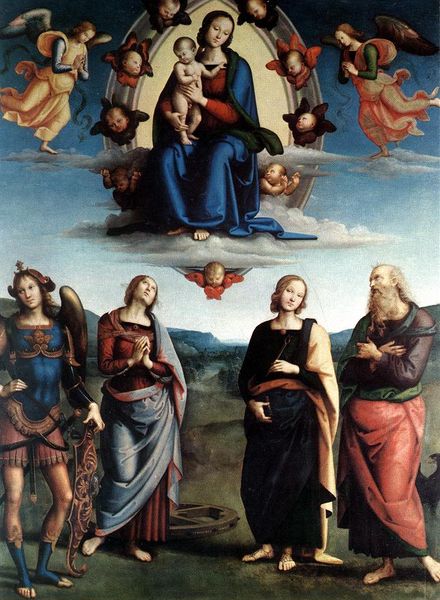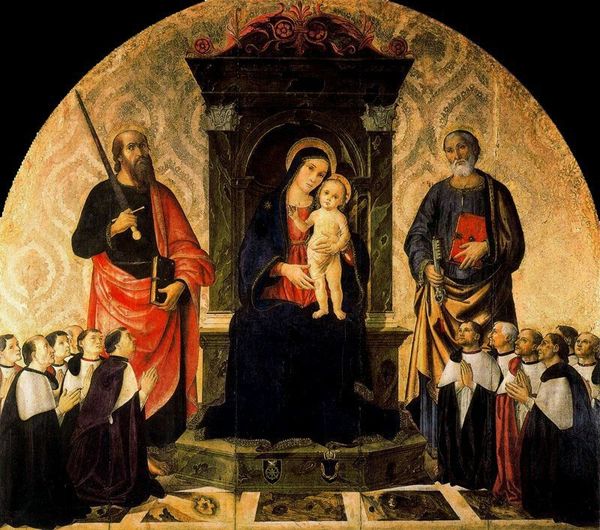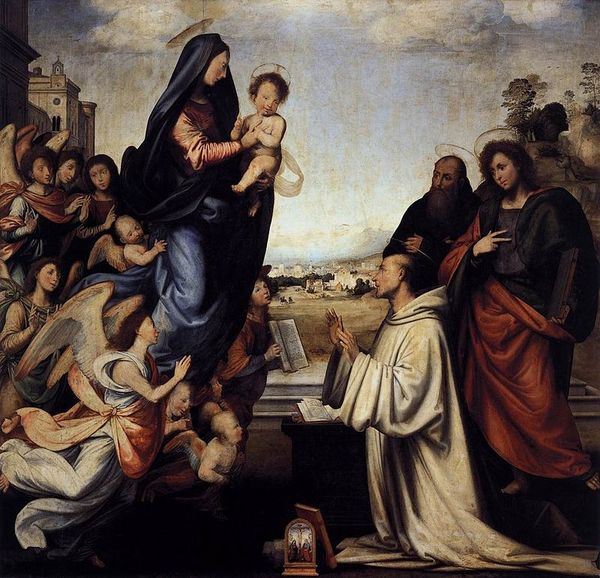
painting, oil-paint
#
portrait
#
painting
#
oil-paint
#
11_renaissance
#
oil painting
#
christianity
#
history-painting
#
italian-renaissance
Copyright: Public domain
Lorenzo Lotto painted this altarpiece with oil on wood in the early sixteenth century, a traditional medium for devotional images in the Renaissance. The luminous quality of Lotto’s paint is quite striking. Notice the way that Mary’s red dress glows, and how the fabrics of the saints' robes drape and fold. Lotto achieved these effects through layering thin glazes of pigment, a painstaking and skilled process. Oil paint allowed for blending and reworking, essential for capturing these lifelike textures and subtle gradations of color. The painting also contains underdrawings and preparatory layers of gesso beneath the paint. Lotto's mastery is evident not just in the composition, but also the labor-intensive techniques he employed. The use of expensive materials reflects the patronage system of the time, where wealthy individuals or religious institutions commissioned works to demonstrate their status and piety. Thinking about the artist's skilled labor helps us appreciate how he brought this sacred vision to life. Material, making, and context, all of these give us a deeper insight into the cultural significance of "Madonna and Child Enthroned with Four Saints".
Comments
No comments
Be the first to comment and join the conversation on the ultimate creative platform.
